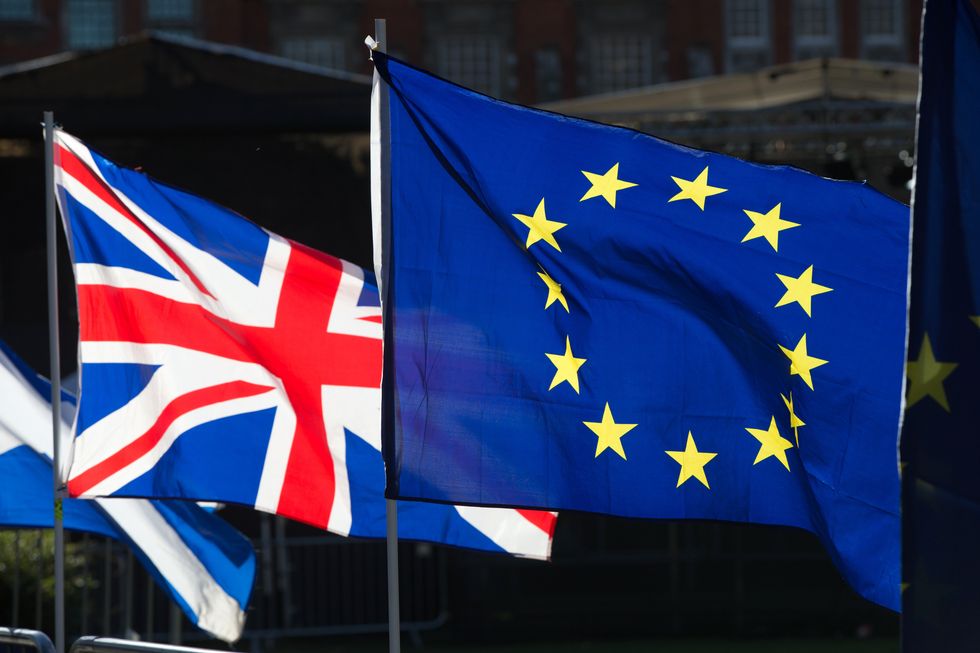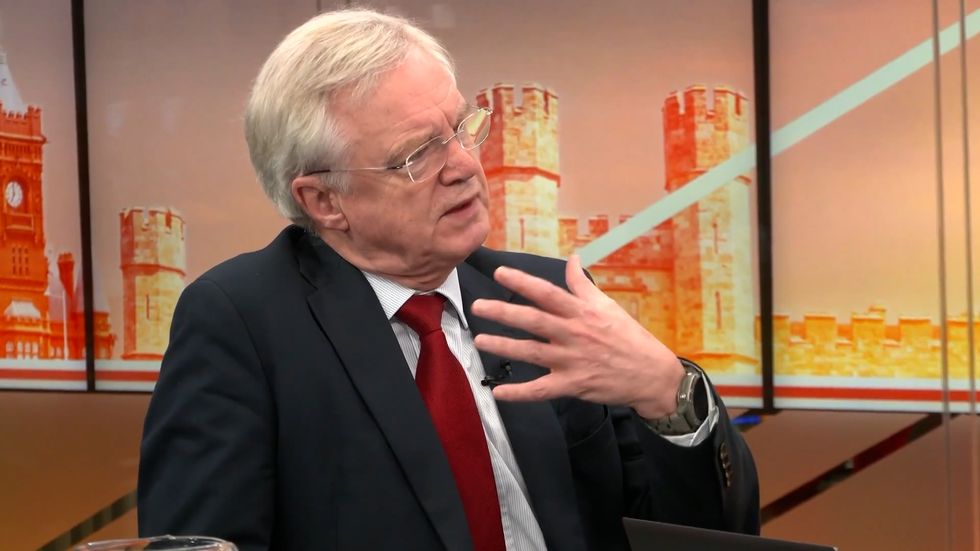Simon Walker / No 10 Downing Street
The fine was described as a ‘legacy matter’ from before the referendum
Don't Miss
Most Read
Trending on GB News
Britain has been forced to pay £2.3billion to the European Union – three years after leaving the bloc.
A long-standing import dispute has come to a close this week, with the final payment of £1.1billion being made.
The case goes all the way back to 2017 when the EU’s anti-fraud office said British authorities had allowed criminals to evade customs duties by making false claims about clothes and shoes imported from China.
It found that more than half of all textiles and footwear imported into the UK from China were below “the lowest acceptable prices”.
The UK made a payment of more than £600 million in June 2022, with another payment of £620 million on January 13 this year.
Jonathan Brady
But former Brexit Secretary David Davis has criticised the EU for the fine, saying the judgement is "one more validation of the reasons we have left the European Union".
Speaking to the Daily Express, the Conservative MP said: "I find it very hard to believe that HMRC has done a less good job of dealing with attempted undervaluation for imports than let us say Belgium or Italy or Spain or any other European country.
"This strikes me as yet one more validation of the reasons we have left the European Union.
"Whilst it is understandable that the Treasury wants to put these things behind us, I am not remotely persuaded that this was a fair judgement."
Chief Secretary to the Treasury John Glen confirmed the payment in a written statement to the Commons.
Former Brexit Secretary David Davis MP
GB News
“Whilst the UK has now left the European Union and this is a legacy matter from before our departure, the Government is keen to resolve this long-running case once and for all and is committed to fulfilling its international obligations,” he told MPs.
Mr Glen said the final bill represented the interest due on the “principal amounts paid” and would “draw a line” under the issue.










